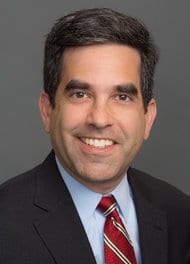The Securities and Exchange Commission (SEC) announced that Deutsche Bank has agreed to settle charges that it misled clients about the performance of a core feature of its automated order router that primarily sent client orders to dark pools.
The New York Attorney General’s office today announced a parallel action, and Deutsche Bank agreed to admit wrongdoing and pay $18.5 million penalties to the SEC and NYAG for a total of $37 million.

Andrew J. Ceresney
Andrew Ceresney, Director of the SEC’s Enforcement Division, commented:
Deutsche Bank claimed to be using ongoing data analysis to rank the dark pools best suited for customer orders when in reality its system failed to actually do this analysis. When broker-dealers tout their material products and methodologies, their statements must be accurate.
Automated strategies for routing customer orders are a critically important part of the market,” added Robert Cohen, Co-Chief of the Enforcement Division’s Market Abuse Unit. “Broker-dealer customers expect to be told if a routing program like Deutsche Bank’s does not function properly, relies on stale data, and routes millions of orders contrary to the described methodology.
According to the SEC’s order, Deutsche Bank made materially misleading statements and omissions concerning the Dark Pool Ranking Model feature of one of its order routers, known as SuperX+. The Dark Pool Ranking Model was intended to measure execution quality and liquidity of venues to which it sent orders. Deutsche Bank used the Dark Pool Ranking Model to determine which venues would receive orders and the sequence in which Deutsche Bank would send them. Deutsche Bank described this model in its disclosures to clients and potential clients as the “quantitative core” of SuperX+, stating that it “smartly routes and selects optimal pools of liquidity on an order by order basis.”
But the SEC’s order finds that due to a coding error, Deutsche Bank updated the ranking model just once during a two-year period, causing at least two dark pools to receive inflated rankings and consequently millions of orders that SuperX+ would have sent elsewhere if the system was operating the way Deutsche Bank had described.
The SEC’s order also finds that Deutsche Bank manually overrode the rankings on certain occasions and manually assigned fill rates for new venues based on subjective judgment that that turned out to be inconsistent with the venues’ actual performance.
